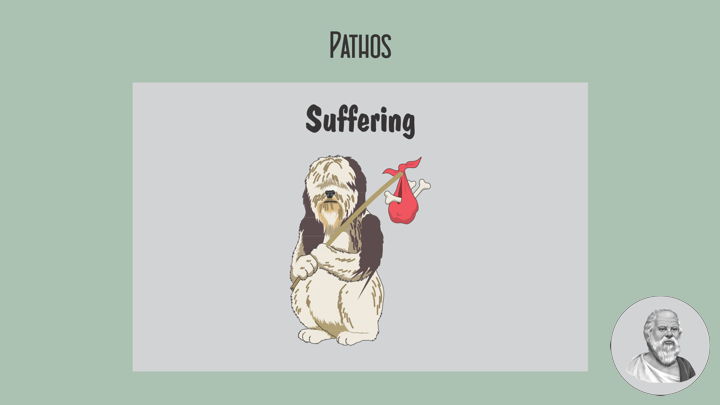——
#LucPaquin #Spirituality #Philosophy #Pathos #WorkLifeBalance
——
——
Pathos
Pathos is a Greek word meaning “Suffering” that has long been used to relay feelings of sadness or strong emotion. It was adopted into the English language in the 16th century to describe a quality that stirs the emotions, often produced by a real-life tragedy or moving music or speech.
Pathos became the foundation for many other English words.
- Empathy: The ability to understand and feel the emotions of others.
- Pathology: The study of disease, which can surely cause suffering.
- Pathetic: Something that causes others to feel pity.
- Sympathy: A shared feeling of sadness.
- Sociopath: Causing harm to society.
- Psychopath: Suffering in the mind.
We see Pathos in everyday life through rhetoric. Whether it’s family, friends or advertisers, people are constantly trying to persuade you of something by appealing to your emotions. However, you can also find Pathos in formal arguments, including famous speeches and political addresses.
Whenever someone tries to make you feel bad enough to do something, they’re using Pathos as a rhetorical tool. They can also use Pathos to explain how happy they would feel if you helped them out, or how hard it will be for them if you don’t.
If a political speech has ever made you feel inspired, angry or upset, it’s used Pathos correctly. Politicians and activists rely on appealing to their audience’s feelings to make them feel a certain way and to persuade them to do something.
Pathos is persuasive technique that try to convince an audience through emotions. Pathos advertisement techniques appeal to the senses, memory, nostalgia, or shared experience. Pathos examples pull at the heartstrings and make the audience feel. A quick way to appeal to a viewer’s emotions? A cute animal. A devastated family. A love story. Overcoming great odds.
Luc Paquin

Leave a Reply